TAIF Group: more than $9.5bn of socially-oriented investments in 27 years
Force for good of the native land: what socially significant projects in the period from 1995 to 2022 were implemented in the republic with the participation of TAIF Group
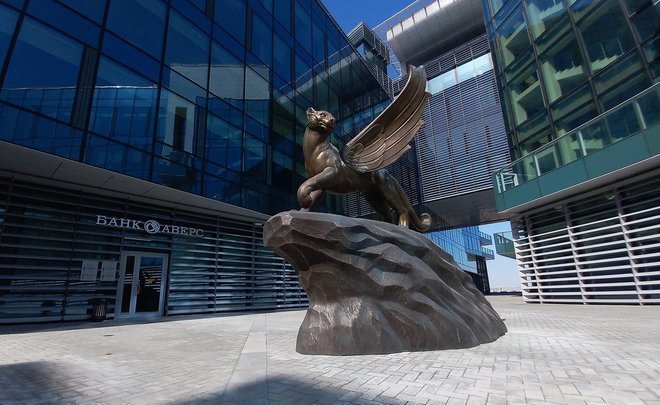
September 17 marks exactly 33 years since the founding of Kazan VTNPO — the company on the basis of which, in 1995, TAIF JSC was created. In the run-up to the next birthday of the parent company of TAIF Group, Realnoe Vremya online newspaper begins publishing the cycle Force For The Good Of The Native Land about what socially significant projects were implemented in Tatarstan with the support of the Group, as well as about the scope of socially-oriented investments in the period from 1995 to 2022.
Let's dot all the i's
“Act with kindness but do not expect gratitude”, these words are attributed to the thinker and philosopher of Ancient China Confucius. Having passed through the centuries, wisdom has not lost its relevance.
Let's dot all the i's: for some, social investments, investments in social projects and charity are synonymous. But it's not like that at all. Let's try to figure it out:
- charity — providing gratuitous or preferential assistance to those who need it;
- investing in social projects is not a gratuitous (assuming payback) investment in social organisations, projects and movements in order to obtain a social effect;
- socially responsible investment is a systematic strategic activity of a business aimed at the continuous development of business and, as a result, related industries and areas: human capital, science and education, the environment and living conditions and leisure of people, and many other important points to achieve maximum economic effect for the business itself, at the same time, influencing the improvement of the quality of life of society, that is, solving social problems.
It turns out that charity and investments in social projects are only part of socially responsible investment.

The whole history of TAIF Group is nothing but constant and unceasing investments in the development of the republic: since 1990 and the creation of VTNPO Kazan, which took on a difficult mission to organise the supply of essential items to Tatarstan: food, clothing, construction materials, and much more, further, when TAIF started its activity and to this day.
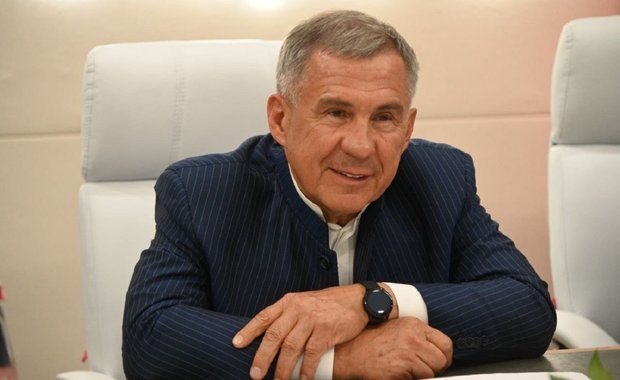
Rais of Tatarstan Rustam Minnikhanov emphasised in one of his interviews:
“Our well-being lies in that Tatarstan has managed to preserve the oil complex, both oil refining and petrochemical — and all this works for the benefit of our republic. Certainly, TAIF has a great merit in this.”
In the early years of the formation of the new Russia, it was the young TAIF team that happened to take a direct part, in fact, in saving the petrochemical industry of the republic — first Nizhnekamskneftekhim, and then Kazanorgsintez — from seemingly imminent bankruptcy, and tens of thousands of people from losing their jobs. It was thanks to TAIF that the first oil refining enterprise in the republic, TAIF-NK, was created in Tatarstan. And all this is also part of the socially responsible investment of the company.
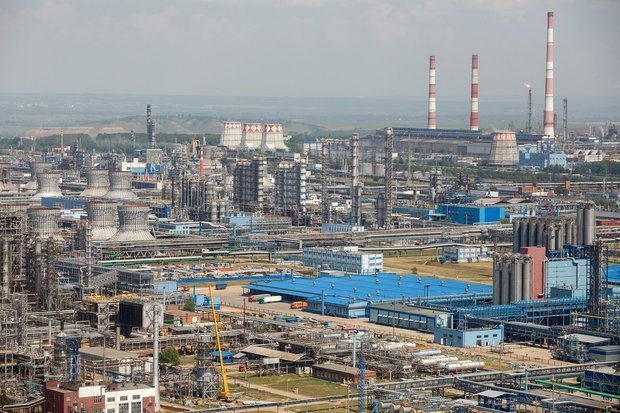
1996. Nizhnekamskneftekhim. Once one of the country's leading enterprises owed creditors more than $50 million at the rate of 4,600 non-denominated rubles per US dollar. In 1992, Nizhnekamskneftekhim completed the reconstruction and modernisation of ethylene production, but the level of production utilisation was falling. In 1996, it barely reached 225 thousand tonnes a year. Synthetic rubbers were produced only 128 thousand tonnes instead of the possible 450 thousand tonnes. A bankruptcy loomed, and plans were already being seriously discussed to split Nizhnekamskneftekhim into eight independent plants and sell them in parts, effectively destroying the unique complex. Moreover, the relevant documents were prepared, which only needed to be signed...
The republic could not allow the loss of the petrochemical giant — one of the pillars of the economy of the Republic of Tatarstan. And it was important to keep the petrochemical production in the hands of Tatarstan. The first president of the republic, Mintimer Shaimiev, instructed TAIF to revive the complex, which was almost bankrupt. This was one of the first cases in the recent history of Tatarstan, and probably Russia, when private business was involved in the economic recovery of one of the largest fuel and energy companies in the country and Europe. The company was not only saved, but also significantly increased its production potential and increased the range of products tenfold, providing domestic and foreign markets with the necessary monomers and polymers.
Nizhnekamskneftekhim, which entered the active phase of development with the help of TAIF, needed more raw materials — straight-run gasoline. They had to solve the problem. The underloaded and very outdated ELOU-AVT-7 primary oil distillation unit was first leased from Nizhnekamskneftekhim, and then bought out. After several years of hard and persistent work by the specialists of TAIF JSC and the oil refining company itself, the unit was transformed into the first in Tatarstan and today one of the most innovative oil refining complexes in Russia — TAIF-NK JSC. Thousands of people have found a job and a decent salary. Petrochemical plants, with the commissioning of TAIF-NK, have acquired a stable source of raw materials, and the republic has become a reliable supplier not only of automotive fuel, but also of almost four dozen more in-demand types of products, as well as another large taxpayer.
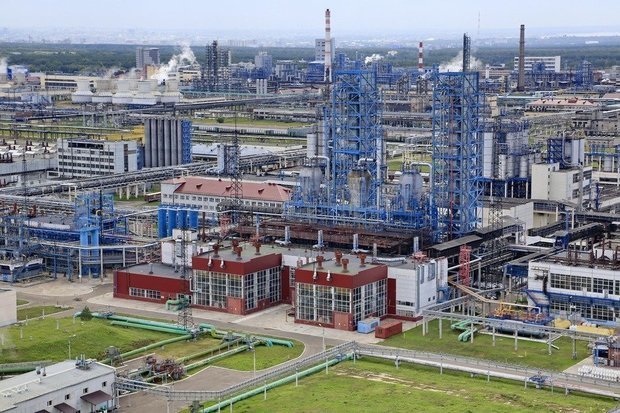
A similar situation with Nizhnekamskneftekhim, and at about the same time, took place with another petrochemical giant of Tatarstan — Kazanorgsintez. The government of the republic, seeing the success of TAIF's team in saving the Nizhnekamsk complex, instructed the company to pull Kazan production out of the crisis pit. Albert Shigabutdinov, the director general of TAIF JSC, headed the newly created supervisory board, Vladimir Presnyakov, the deputy director general for petrochemistry and oil refining of TAIF JSC, who was elected chairman of the board of directors of Kazanorgsintez, with a team of like-minded people participated in the development of the company's strategic development programme for the next 8 years. The amount of investments until 2012 was supposed to be about $900 million. Most of which — borrowed. But in 2008, a global crisis broke out, and the giant, who had begun to rise from its knees, was almost knocked down again.
“We were invited to the Federation Council to discuss the situation of Orgsintez. The company's debt was 30 billion rubles. No one wanted to figure out where the loans came from. Many offered to give Orgsintez to Sberbank. They thought the bank would figure out what to do. I took the floor: “Has anyone wondered why Orgsintez is credited today? It took out loans to expand production. Loans are taken, but they are for development, this is a look ahead. Orgsintez will launch production and pay off its creditors.” No one wanted to believe it. I felt that Orgsintez was leaving, and I said that only over my dead body! I had a right to say that. At that time, Vladimir Putin (then Prime Minister of Russia) suggested a solution to the problem. At a meeting in Nizhnekamsk on gas and petrochemistry, he listened to the arguments of the parties and recommended working on market conditions. Kazanorgsintez concluded a contract with Gazprom and a long-term contract with a formula price for the supply of ethane, the main raw material for the production of ethylene and then polyethylene. The deals were completed thanks to participation in negotiations and personal guarantee of TAIF's management. The situation was resolved, Kazanorgsintez paid off all debt obligations ahead of schedule — a dozen years after those events, Tatarstan State Counsellor Mintimer Shaimiev remembered about it at the 55th anniversary of the joint-stock company.
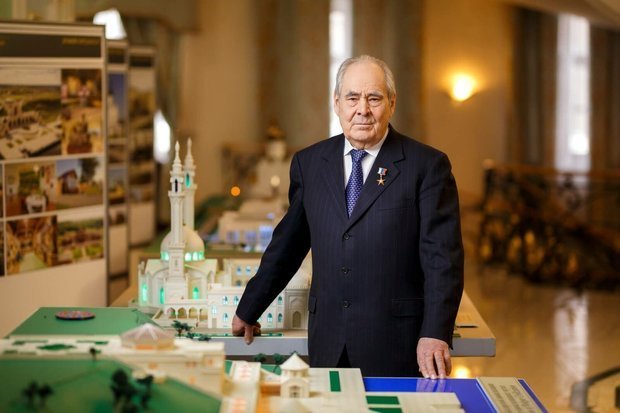
Again, many thousands of saved jobs. And not only at Kazanorgsintez, which continued its development, which means that it produces products that are the most important raw materials for hundreds of companies and enterprises in Russia and the world.
In the history of the Group's companies, that is, since 1995, the total volume of investments, in fact, amounted to $63,6 billion. These are funds invested in the construction, renovation, and modernisation of production facilities that form the basis of the economy of Tatarstan and are of great importance for the country as a whole. This is the attraction of technologies, the implementation of personnel training programmes, multi-billion tax deductions and remuneration of specialists — all that ultimately leads to the development and strengthening of the company, the industry, the economy of the region and the country, and also serves to improve the well-being of every specialist working at the production facilities, their family members and society as a whole.
“At the beginning of the journey, the company sought to invest in those areas of the economy, the absence or underdevelopment of which seriously hindered market transformations in the republic. For example, the lack of fast and high-quality communication. The company started creating the market of modern telecommunications, including multimedia, services. It launched mobile and fixed-line communication projects, created terrestrial and satellite television. Or, for example, when the complex of the primary oil refining plant was reconstructed and built, it became obvious that there were no modern construction capacities in Tatarstan. Such companies were also created by TAIF. And so one after another," Tatarstan State Counsellor Mintimer Shaimiev repeatedly stressed.
Throughout the history of its activity, TAIF has carried out and continues to invest in various industries and is engaged in the development of various businesses: oil refining, petrochemistry, energy, construction, telecommunications, banking, insurance, etc., while contributing to the development of the economy of the Republic of Tatarstan and the Russian Federation as much as possible. Without setting itself the goal of completely taking over a particular company, TAIF, using all its production potential, high managerial competencies and accumulated experience, brings the created or acquired assets to a qualitatively new level, ensuring the growth of their production capacity and, as a result, cost, and further transfers them to the new owner on market conditions with unconditional guaranteed continuation of the implementation of development programmes of these companies. And there are many examples of this: these are TAIF-Telcom (SANTEL brand), TVT, MSK Avers, a number of construction companies, as well as Nizhnekamskneftekhim PJSC, Kazanorgsintez PJSC, etc.
A socially responsible business
But, in this cycle, we are not talking about almost $64 billion — that is, the funds invested specifically in the development of production, and thereby, having a significant effect on improving the economy, and hence the development of socially significant areas. Therefore, let's return to the figure of more than $9,5 billion, which was announced precisely as a socially responsible investment of TAIF Group companies in its entire history.
“TAIF Group has never worked just for businesses. All its projects are closely connected with the fate of workers — tens of thousands of Tatarstan citizens working at enterprises. Therefore, the leadership of TAIF Group has always consciously taken social responsibility. Already at the initial stage of the company's work, it was decided that a significant part of the profits would always be directed to social support for the families of employees, to create comfortable living and recreation conditions, to provide education and maintain the health of their children. It's been like this all these years. But, in addition to the targeted support of employees, TAIF Group saw its task in creating a comfortable urban environment, in improving the lives of all citizens," Albert Shigabutdinov, the chairman of the board of directors of TAIF JSC, stressed more than once.
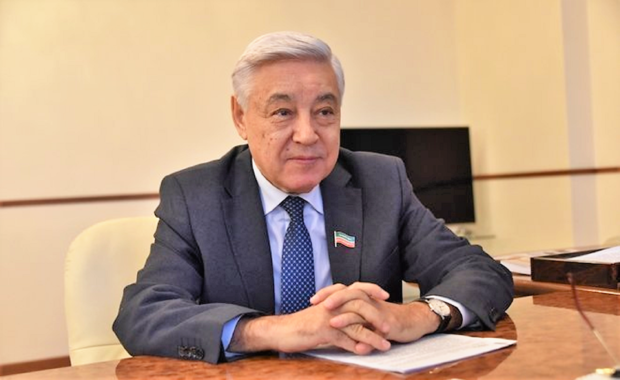
“The concept of 'socially responsible business' is not an empty phrase for TAIF. Moreover, I am referring not only to the company's large contribution to the budget of the republic through tax payments and fees, and they are sometimes comparable to the budgets of some regions. TAIF makes a huge contribution to the implementation of republican social programmes, provides great charitable and sponsorship assistance to educational and socio-cultural institutions, actively supports leading Tatarstan sports teams, participates in the restoration of historical and architectural monuments of native Tatarstan — the revival of Bolgar and Sviyazhsk. The company takes care of war veterans, 'Afghan' soldiers, people with disabilities, orphans, families who have fallen into a difficult life situation," said сhairman of the State Council of the Republic of Tatarstan, Farid Mukhametshin, told Realnoe Vremya in an interview.
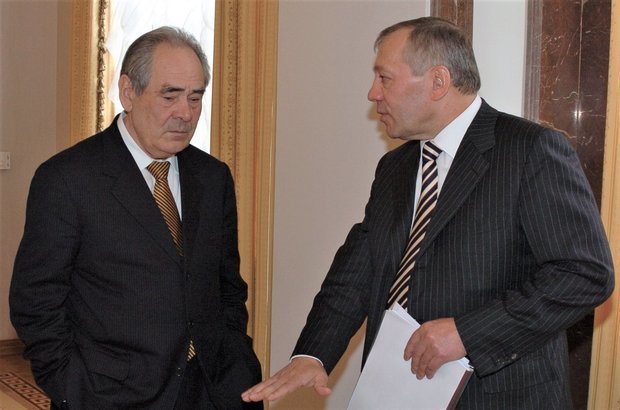
“Developing, the company faced another very serious problem: an acute shortage of qualified specialists. They developed a training programme that also includes training abroad. We received trained specialists, but it didn't work that way. These same specialists suddenly began to go abroad and to Moscow. Few people left because of the salary, the size of which in the company has always been at a decent level. It turned out that the main reason was the lack of conditions for a normal life: in the city in those years there was neither high-quality medical care, nor service of the appropriate level, nor modern recreation and entertainment infrastructure. Therefore, it was decided to also engage in the development of the service sector. They started building residential complexes, the company built the large cultural and entertainment complex Piramida, which is now popular in Kazan," Mintimer Shaimiev told about one of the many projects implemented by TAIF.
But first things first, and in a little more detail.
People should live in comfortable housing
Just a year after the establishment of TAIF, the company, along with solving global tasks to save the economy, launched large-scale social projects. TAIF became actively involved in solving the most important and complex problem — housing shortage. Even in the capital of Tatarstan, tens of thousands of people continued to live in dilapidated, or even emergency houses. The situation was aggravated by that the construction industry not only of Tatarstan, but also of the country as a whole, hardly survived the change in the political and economic system in the state after the collapse of the USSR.
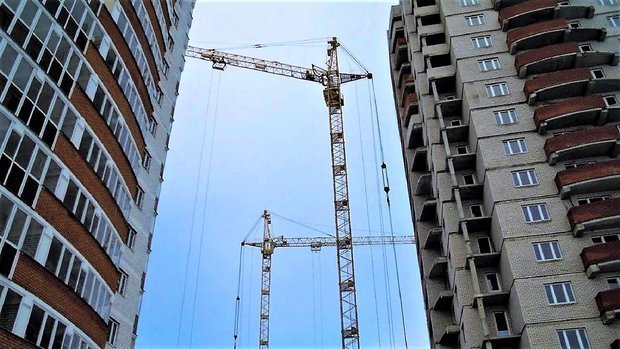
“With the participation of TAIF, Tatarstan implemented an unprecedented presidential programme for the elimination of dilapidated housing for the post-perestroika Russia. 'The decision to end this 'problem of the century' in such a difficult, perestroika, economically unstable time from the outside probably seemed not so much strange as unreal," recalls the first President of Tatarstan, State Counsellor of the Republic of Tatarstan Mintimer Shaimiev.
At the very beginning of this large-scale campaign — in the late 1990s, the diversified holding company took over, among other things, the function of supplying material resources. Due to the loan attracted by TAIF Group, in the conditions of the economic crisis and the shortage of working capital, financing was provided for the start of the fund's activities and the delivery of more than 160 thousand tonnes of cement, more than 130 thousand tonnes of metal, pipes, and other equipment was organised. As part of the programme to eliminate dilapidated housing, a subsidiary of the Meta-TAIF holding built two 12-storey brick houses with a shopping complex in the Kazan microdistrict Azino-1 in record time in 1997. A year later, two more residential buildings were commissioned. Kazan residents living in old, unsettled houses in the city centre had the opportunity to move to new comfortable apartments.
“Certainly, the management of TAIF company understood that in material terms it lost more than it gained. Any Western company would not have lifted a finger in this scenario, but in our case, the image of the republic was at stake on the eve of the celebration of the millennium of Kazan, the opportunity to support the residents of the city not with words, but with deeds," Talgat Abdullin, the former executive director of the State Housing Fund under the President of the Republic of Tatarstan, says about that time.
“For 30 years of work, TAIF Group has built office and administrative buildings in the capital of Tatarstan, within the framework of programmes for the elimination of dilapidated housing and social mortgages it has built residential complexes in Kazan and Nizhnekamsk," Rustam Minnikhanov emphasised in the introductory speech to the recently published publication on civil construction of TAIF Group.
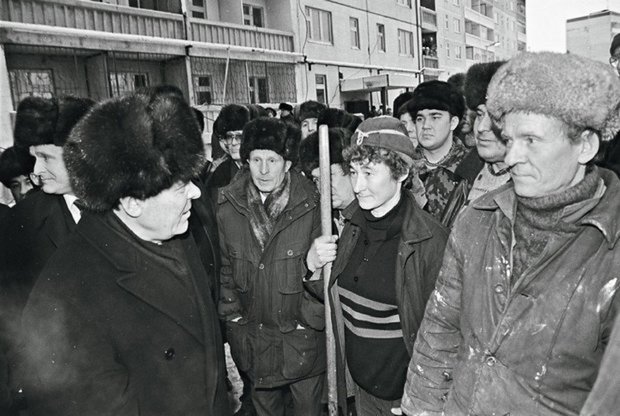
As a result of the implementation of the republican programme for the elimination of dilapidated housing, 1,763 new houses were built in Tatarstan from 1995 to 2004, housing with a total area of 2,7 million square metres was commissioned. This helped to reduce the share of worn-out housing stock in the republic from 60% to 45% and, thereby, reduce budget expenditures on the maintenance of old houses and capital repairs. According to Talgat Abdullin, it was a breakthrough in social terms, when the low-income population was rescued from dilapidated housing of the 19th century, often deprived of basic amenities: water supply, sewerage, heating, with a population density exceeding any permissible norms, and relocated to comfortable apartment buildings of the 21st century, and TAIF made his first contribution to the overall the case.
Needless to say, such investments gave a serious impetus to the construction industry as a whole. And not only to it, but also to related areas: the production of construction and paint materials, metal structures, plumbing products, engineering communications, the glass industry and the manufacture of window and door blocks, heating systems, construction and special equipment, breathed new life into the field of freight transport and logistics services…
After the republican programme for the elimination of dilapidated housing was completed in 2004, a new social mortgage programme was launched almost immediately, also designed to improve the living conditions of the population of Tatarstan. The diversified holding annually made voluntary contributions to the implementation of the social mortgage programme. Besides, the management of TAIF, together with the management of the Group's enterprises, decided to allocate a target loan for up to 15 years to its employees to pay the initial payment for the purchase of housing.
Thanks to the active use of corporate and co-financing of state mortgage programmes, thousands of specialists of the Group had the opportunity to celebrate a housewarming party. During the period from 2005 to 2021 alone, almost 7 thousand families of employees of the Group's companies celebrated this joyful event.
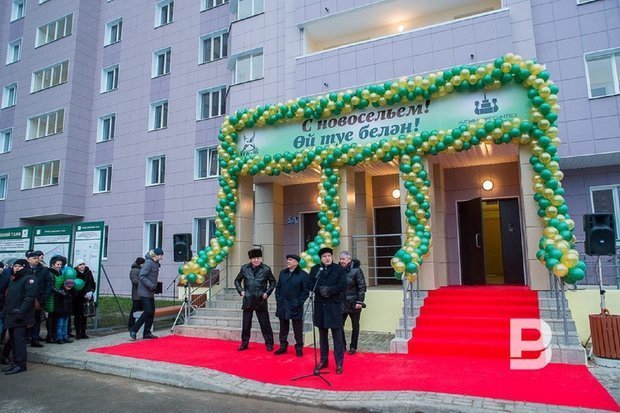
Conscientious long-term work in TAIF Group companies opened up even more opportunities for specialists: the Group's enterprises took over part of the debt for the purchased housing under the corporate programme, encouraging highly professional and highly efficient employees.
“Tatarstan occupies a leading position in Russia in terms of the scale of its social programmes, and TAIF always participates in them. They made a significant contribution to the implementation of the Programme for the elimination of dilapidated housing, supported and continued to support the republic in the implementation of the programmes 'Social Mortgage', 'Belekech' and other equally important and in demand," Minister of Construction, Housing and Utilities of the Russian Federation Irek Fayzullin noted the merits of TAIF in the development of the construction industry.
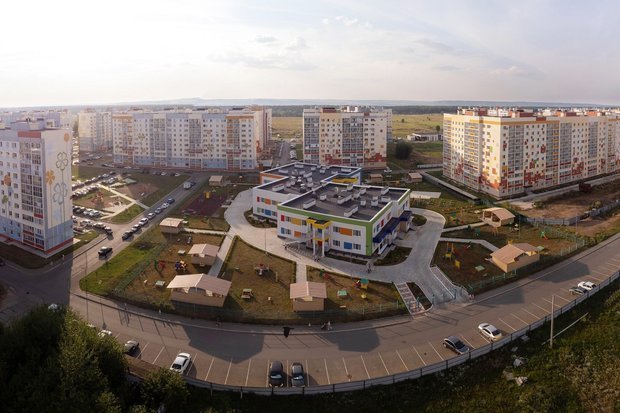
Despite the volatility of world currency exchange rates, as well as huge efforts to restore the economy of Tatarstan and large-scale investments in the development of production facilities, TAIF Group companies annually increase their participation in social projects. The contribution of TAIF Group to the activities of the Public Housing Fund from 1996 to 2018 amounted to more than 11 billion rubles, or more than $325 million at the average annual rate. In the period from 1996 to 2021, the Group's companies invested more than 27,3 billion rubles in the implementation of a set of programmes to improve the living conditions of employees of their own production facilities, for financial assistance, including for the purchase of housing and repayment of mortgage interest, which exceeds $804 million at an average annual rate.
To be continued...